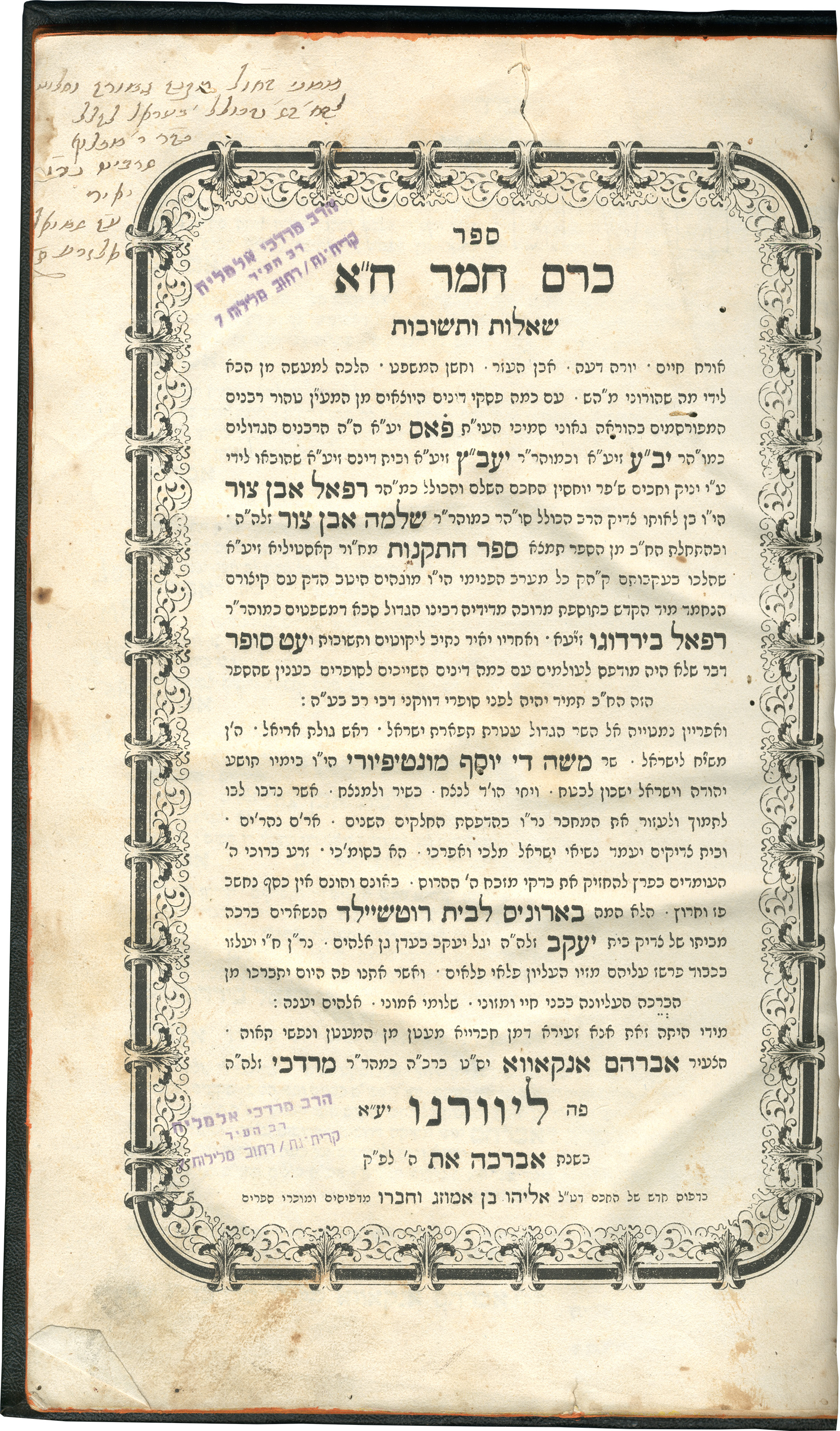Abraham ben Mordecai Ankawa was born in in Salé, Morocco, in 1810, to a family of Spanish origin (one of his ancestors is Ephraim Ankawa who escaped the Spanish Inquisition and, according to legend, came to the Maghreb mounted on a lion). Ankawa settled in Algeria in 1846, fourteen years after the French began their colonial conquest, and was nominated by the French authorities as a rabbin indigène in 1859. His responsa book, Kerem Ḥemer, was printed in Livorno in 1869–71. It is a collection of responsa in two volumes. The first volume is arranged according to the four parts of Shulḥan Arukh
It is important to note that Ankawa's rabbinical biography and bibliography resonates strongly with the chronology of the French colonial regime in Algeria: by 1859 Ankawa and his colleagues were allowed to rule only on marital matters and religious–ritual issues. And at the time Kerem Hemer was published, the Crémieux decree had naturalized most of the Jews in Algeria and officially subordinated them to French family law, thus dissolving the last aspect of Jewish law that had some kind of jurisdictional autonomy. It seems then, that the fact that Ankawa publishes a book of responsa subsequent to the mass naturalization requires an explanation.
One option we should consider is that Ankawa publishes Kerem Hemer in order to provide Algerian halakhah with a 'decent burial' (if we are to utilize Scholem's portrayal of Moritz Steinschneider's work and all of the Wissenschaft des Judentums movement). Another possibility is to describe Kerem Hemer as an act of cultural defiance against colonial patronage that privileges certain practices or ideas over others; a demonstration of resistance to the colonial regime's effort to marginalize local and independent Jewish ruling. In contrast with the French-colonial compartmentalizing approach, which sought to separate between politics, religion and law by setting geographical as well as clerical boundaries, Kerem Hemer should be understood as a counter religio-political project that defies colonial attempts to demolish and reconstruct indigenous religiosity.
